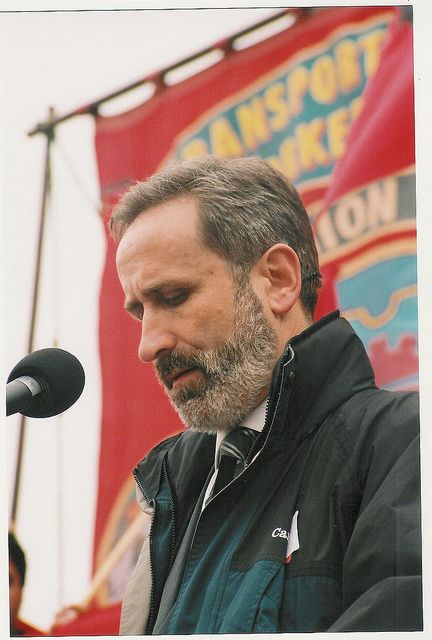
This article was first published by the Global Call for Climate Action on their website : http://tcktcktck.org/2015/04/jozef-niemiec-what-is-just-transition-and-why-do-we-all-need-to-get-behind-it/67880
By Józef Niemiec, Deputy Secretary General, European Trade Union Confederation
Climate action is not simply an environmental issue. It requires society to make major changes to the economy. It cannot be imposed from above.
Around the world, millions are already mobilised to support this transformation. But many others still need to be convinced and without the backing of workers and their families, in Europe and elsewhere, ambitious climate action will simply not happen.
Representing 90 trade union organisations from 39 countries, the European Trade Union Confederation (ETUC) supports climate action.
We support and call for greenhouse gas emission reductions for developed countries of at least 25-40% by 2020 (based on 1990 levels), and 80-95% by 2050, to avoid an increase in global temperature of more than 2°C by 2100.
The ETUC also supports a fair, legally binding and ambitious international climate agreement.
But any international agreement must support a “just transition”, and at the ETUC we are calling for a climate deal agreed in Paris at the end of the year to include provisions for a “just transition of the workforce, and the creation of decent work and quality jobs”.
It is vital that anyone supporting climate action also make the case for a just transition.
But what does a just transition mean?
It is a call for social fairness. It means that workers must not be left behind by climate action and the transition to a low-carbon economy.
Workers must participate in, and when necessary be supported to make, the transition.
The ETUC has defined 5 key elements for a ‘just transition’:
- Participation The scale of changes necessary to reach 80-95% reduction in greenhouse gas emissions by 2050 demands engagement from all sections of society. Social dialogue, negotiation and participation underpin and reconcile social cohesion, quality employment, job creation and increased innovation and competitiveness. Only through consistent and stronger worker participation can change be managed in a socially acceptable manner.
- Jobs There are no jobs on a dead planet, but equally there is no future for society without decent jobs and wages. Green and decent jobs can be created through investments in (new) low-carbon technologies, in R&D and innovation, and technology transfer. But it is not enough to focus on emerging ‘green’ sectors, such as renewable energy, energy efficiency and waste management. There must also to be a decarbonisation of existing, sometimes ‘dirty’, sectors, with the creation or maintenance of jobs.
- Training & education Government-led, active education/training and skills policies are fundamental to the transition to a low-carbon, resource-efficient economy. All workers should have access to education and training, regardless of their age, gender, employment status, or nationality. It is particularly important to enable groups such as the low-skilled, older workers and workers on temporary or part-time contracts, to develop their knowledge, skills and competences throughout their working life.
- Democratic rights Respect for trade union rights and human rights is essential for a Just Transition. The right to represent workers’ and communities’ interests must be guaranteed in all countries.
- Social protection Public policy must provide a safety net through active labour market policies, strong social protection and support measures. A European restructuring framework must include support mechanisms for workers who fall victim to economic change.
A just transition means achieving ambitious climate action in a way that benefits the whole of society and does not simply pile the costs on the least privileged.
